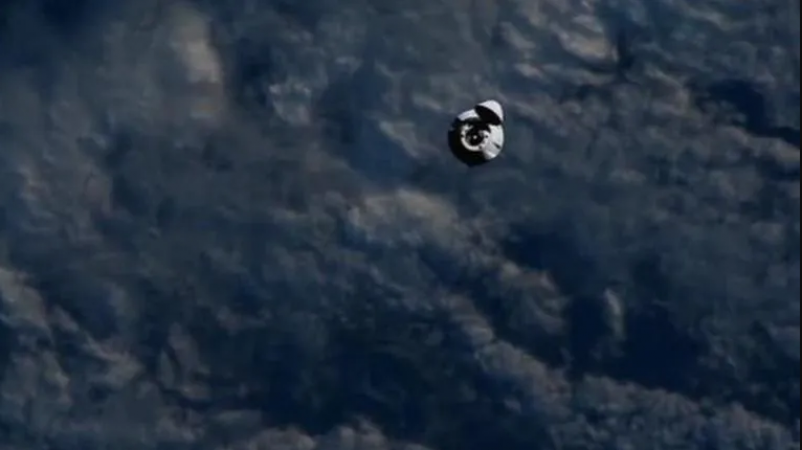
USA: On November 27 at 7:39 am ET, SpaceX's Dragon spacecraft successfully docked at the International Space Station (ISS) with around 3,500 kg of cargo (6:09 am IST).
At 2:20 PM EST on 26 November, the mission took off (12:50 AM IST, 27 November). Supplies sent to the space station included seeds, solar panels and even Thanksgiving treats for the crew.
SpaceX has launched 54 times this year, the most recent being the 26th Commercial Resupply Mission (CRS) to the ISS. For the space station, the spacecraft delivered a unique assortment of cargo, including tomatoes, liquid resin-like construction materials, and even a diagnostic kit.
Also Read: India's growth is linked to its technological advancements: Jaishankar
A crew of seven people aboard the floating station received supplies after the launch was delayed.
On November 26, the SpaceX Dragon spacecraft was launched atop a Falcon 9 rocket, from Launch Complex 39A at NASA's Kennedy Space Center in Florida.
Due to "bad weather conditions", the launch scheduled for 22 November has been postponed.
At this point, the spacecraft has successfully docked with the ISS.
Also Read: iQoo 11 display specifications have been confirmed on 2nd december
Tomatoes, a flight diagnostic kit, construction supplies such as liquid resin for ISS power generation, and solar panels made up the spacecraft's cargo, which weighed about 3,500 kg.
There were also late Thanksgiving treats for the seven-person crew aboard the space station. They included hot green beans, ice cream, apple and cranberry desserts, candy corn, and almond pumpkin pie.
Also Read: Telegram, WhatsApp, and other internet providers are used by Cubans as illegal online markets thrive
Vegetables such as lettuce and radish have been grown and eaten on the ISS. The Red Robin variety of dwarf tomato will now be grown by scientists on the space station.
It will also be grown on Earth in a carefully monitored experiment.
To find out how zero gravity affects tomato growth, results from the two locations will be compared.